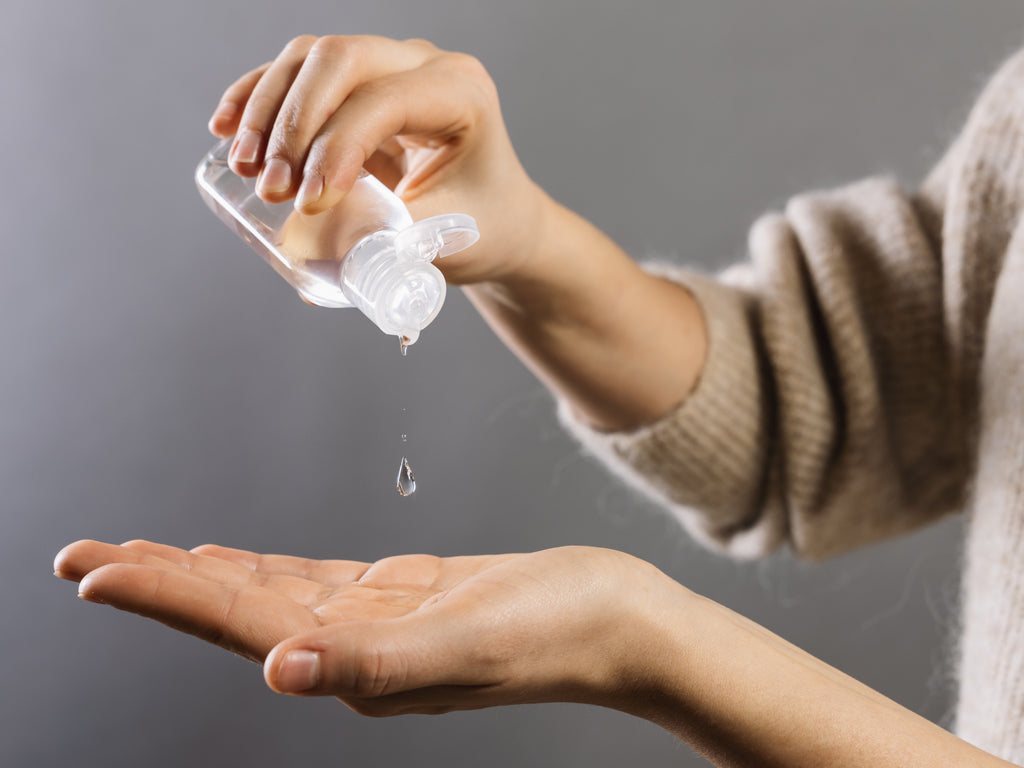 Hand sanitiser: it’s everywhere but what does it do, why should you use it, and what are the alternatives?
Hand sanitiser: it’s everywhere but what does it do, why should you use it, and what are the alternatives?
The most straightforward answer is that hand sanitiser will go some way to protect you from viruses that you might pick up from surfaces!
Viral particles are carried in the air and will lodge anywhere they land! A sneeze carries virus a long way, so the sneezer can end up dispersing the virus onto a table a few feet away. If you’ve picked up a virus from a table, door knob, someone else’s hands or wherever, you’ll need to clean your hands carefully in case you end up transferring the virus into your body by rubbing your eyes or touching your mouth.
First things first: hand sanitiser is not the very best choice for cleaning your hands, to keep you from picking up viral particles on your skin. That would be washing them, for at least 20 seconds, with soap (or hand wash) and hot water.
Washing your hands is the best way of keeping them clean.
But not everyone has access to hot, running water: if you’re on the bus; if you’re out shopping; if you’re working in an environment without taps or if you’re out and about on the move, then hand sanitiser is a good and effective way of keeping your hands clean.
Sanitiser tends to either come as a liquid spray (which can allow for some high concentrations of alcohol) or as a gel, which can make it easier to apply all over your hands, and can mitigate some of the drying effects of the alcohol.
Hand sanitiser will only work if:
- It’s at least 60% alcohol content
- Your hands aren’t greasy and dirty
The alcohol which unzips the viral structure doesn’t ‘clean’ hands in the way that a soap does. It will render the virus ineffective, but doesn’t remove food, oil or dirt from the skin. If viral particles are lodged in greasy dirt, the alcohol is less likely to touch them and break them up, so you need to have visibly ‘clean’ hands before you use sanitiser, whether it’s spray or gel-based. It’s only about disarming the virus, so if your hands are dirty you’ll need hot water and soap to bond to the dirt and allow it to be washed away with the water. That will carry away the virus too, leaving your hands properly clean.
The second point to make is that cleaning your hands, whether with sanitiser or soap, doesn’t give you complete protection from viruses. It’s been shown that the highest risk of infection from Covid-19, for example, comes from airborne particles, rather than surfaces. You’re actually more likely to breathe in viral-loaded particles than transfer them into your body from having touched surfaces.
So, although hand washing and sanitising is still incredibly important, it is only one strategy to minimise your likelihood of catching the virus.
For more information about how to manage the hand cleansing when you’ve got sore or sensitive hands, see our blog Is Hand Sanitiser Safe For Eczema?
Recommended products:
Balmonds Natural Shampoo & Body Wash with calendula and nettle, £19 for 200ml
Balmonds Skin Salvation with hemp and beeswax, from £7.99 for 30ml
Balmonds Intensive Hand Cream with hemp, sea buckthorn & chamomile, from £10.99 for 50ml
Balmonds 70% Hand Sanitiser Gel with tea tree and lemongrass (£8 for 100ml)

 Hand sanitiser: it’s everywhere but what does it do, why should you use it, and what are the alternatives?
Hand sanitiser: it’s everywhere but what does it do, why should you use it, and what are the alternatives?